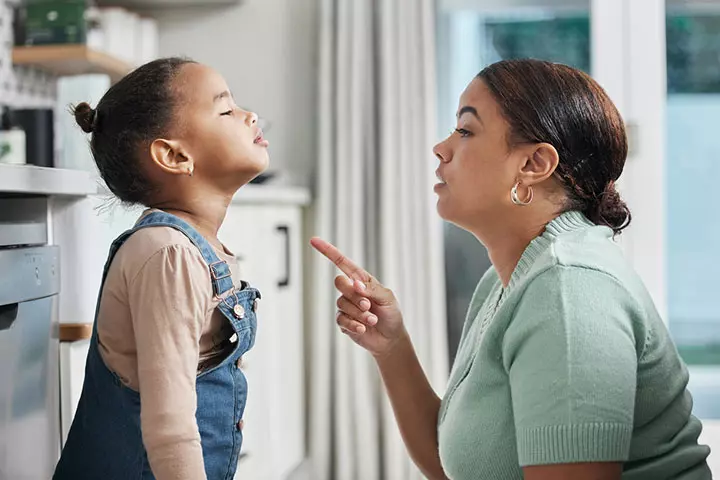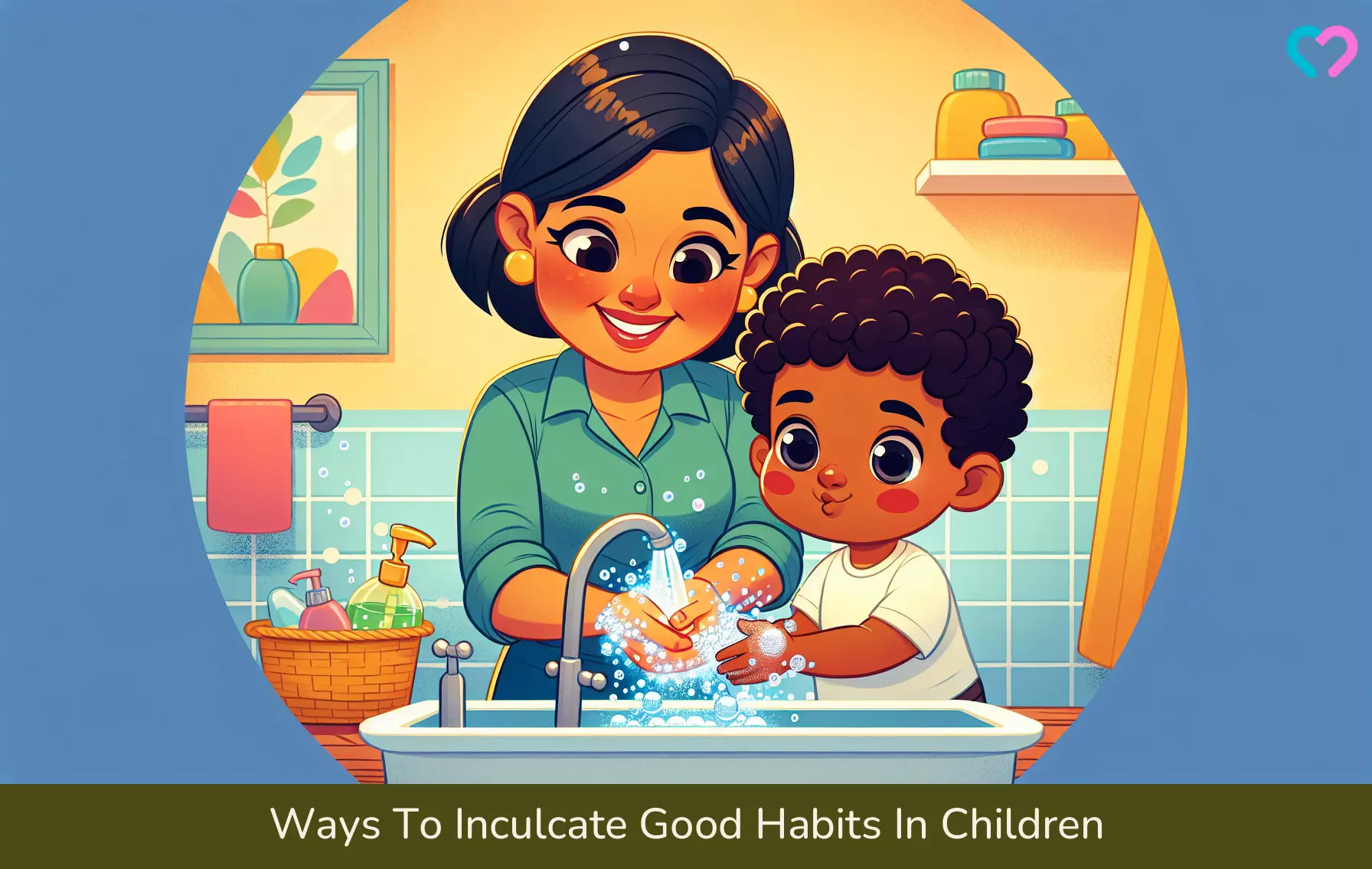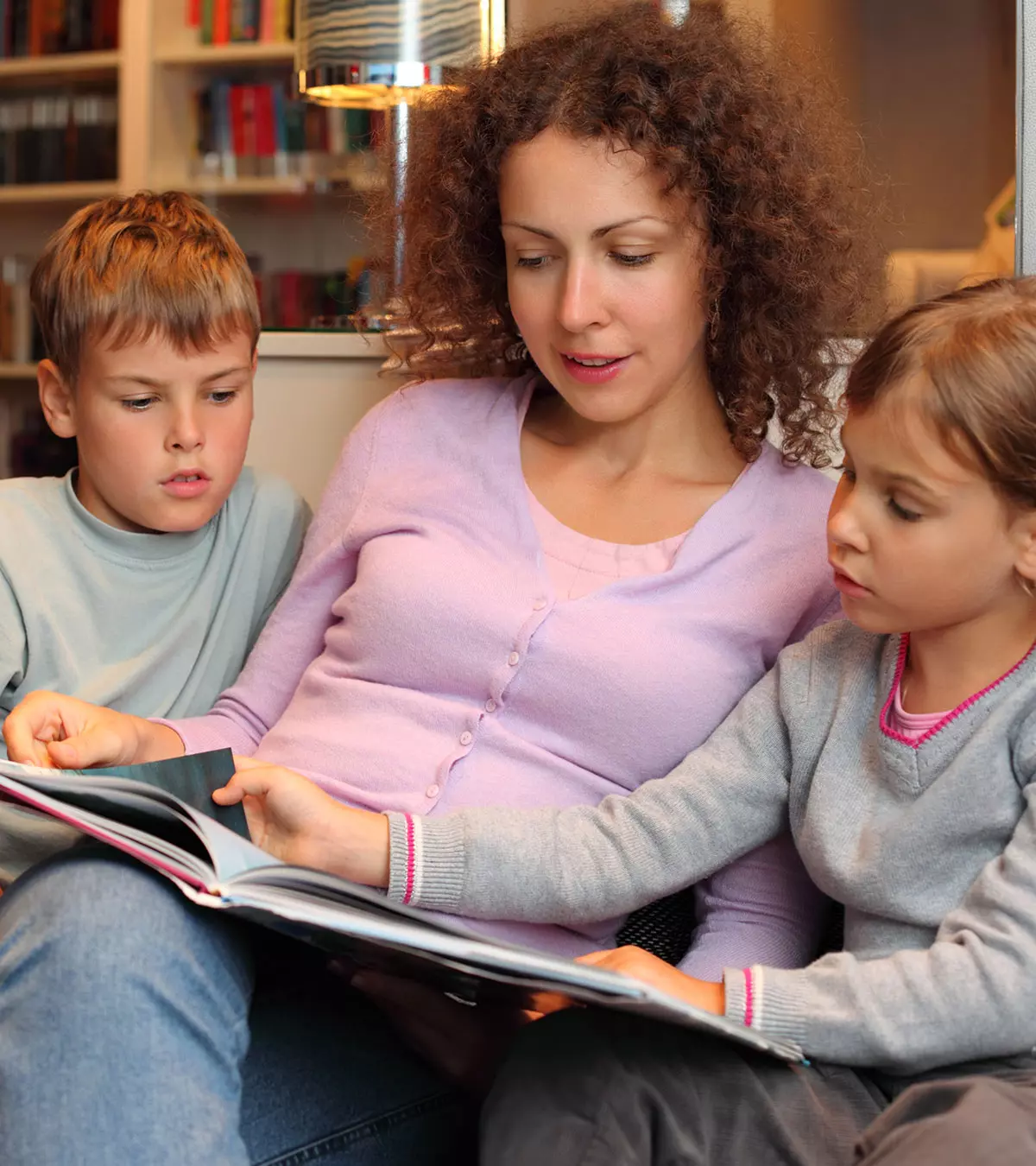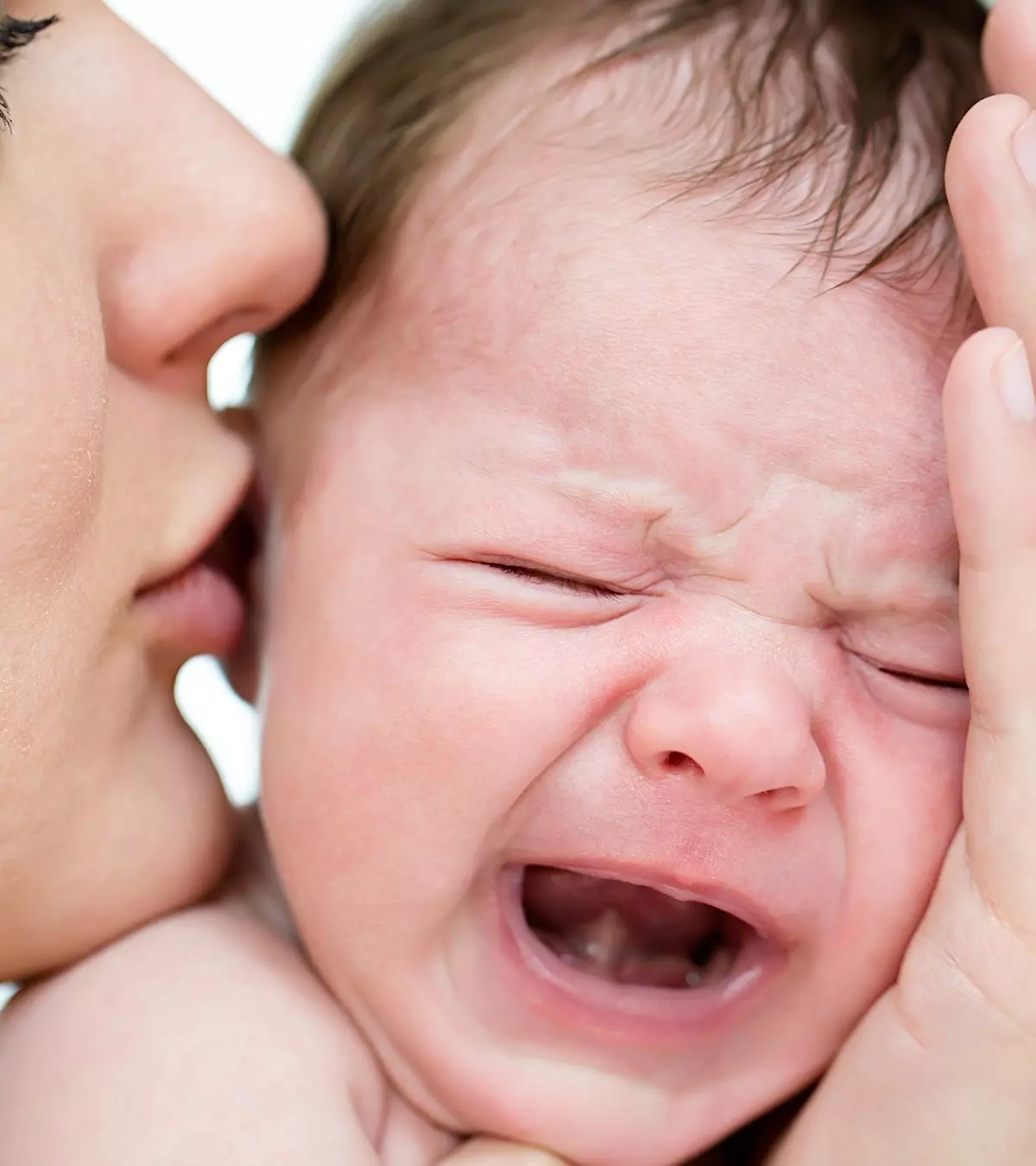
Image: ShutterStock
“It is easier to prevent bad habits than to break them” – Benjamin Franklin

Good habits in children play an important role in establishing and designing their personality and behavior. Parents who strive to make their children good human beings often contemplate how to develop good habits in a child. However, children learn what they see, and as a result, parents serve as role models for the children. Thus, parents should proactively perform and maintain consistency when they are trying to teach their children good habits. This process shapes their behavior while fostering emotional and social growth, laying the groundwork for future interactions. Further, explain the reasoning behind developing good habits so that children feel motivated to follow them. Teach them now and imagine how much easier things will be for them later. Learning good habits and manners is a dynamic process. However, interacting with children and introducing them to good virtues in a fun way can help them develop these habits sooner. In addition, positive reinforcement can help achieve the goal. Thus, if your child fails and forgets to follow some of the rules even after repeated reminders, avoid negative comments, punishments, or discouragement.
A good way to track your child’s development is to discuss the plan with the child’s teacher. In this way, you can keep yourself updated on the child’s progress at school and work on the weaker areas. Read this post to learn about some ways to inculcate good habits in your children.

Click here to view an enlarged version of this infographic
Key Pointers
- Healthy habits are crucial for children’s personality development.
- Create a cheerful home environment by fostering positivity, comfort, and open communication.
- Teach children about the hazards of junk food and the advantages of a healthy diet.
- Encourage good manners by using phrases like “Thank you,” “Welcome,” and “Sorry” early on.
- Show respect and appreciation for children’s accomplishments, and reinforce good behavior with rewards and affection.
25+ Ways To Ensure Good Habits In Your Kid
There are certain habits parents should teach their children, but sometimes, parents are not aware of what they are. So to make things easy, here is the post to learn the role of the parents in inculcating good values in the child. Delve into our list of some good habits you can teach your child daily.
1. Keep things positive

Having a positive frame of mind is extremely essential for you as a parent during your child’s initial years. Everything you teach them now will leave a mark on their thought pattern. The last thing you would want is to see your kid take the route of pessimism and depression as a teen or an adult. Adopt a positive frame of mind yourself, and make sure the environment at home is happy and comfortable.
Often, in children who develop suicidal nature and tendencies to harm themselves, the root cause lies at home. These could be many, such as not finding comfort or safety in the place of upbringing (1). So make sure your home is an abode where your kid feels safe and comfortable.
 Point to consider
Point to considerIn the book titled ‘Purposeful Parenting: Strategies for Raising Children Who Achieve’, Dr. Rose T. Watson states that those children who are cuddled and communicated with on a regular basis grow up to be more confident individuals. This also paves the way for a positive environment at home. Children also need their own furniture and toys, they feel secure in their own space. Dr. Watson suggests parents use the furniture and toys to teach responsibility within the household, like teaching the child to keep the toys back in the right place after playtime is over.
Parents should also maintain a library at home and give their children learning tools so that your child succeeds academically. As parents, encourage your child to search meanings of new words in the dictionary and also find answers to their queries in encyclopedias. This will teach your child how to do research. Books bring order and discipline at home (2). On top of that parents can create book displays on themes linked to meditation and yoga practices to encourage mindfulness in the children.
Encourage your child’s personal growth and development by incorporating nurturing practices such as goal-setting into their daily routine. By working together to establish designated times for study and play, you can instill a sense of discipline that will benefit your child for years to come. Never use slang words or fight in front of your child, this will vitiate the positive atmosphere of the house and the child will learn the wrong things. Children who experience domestic violence grow up to be insecure and violent too.
Here are some points you can keep in mind as parents to maintain a positive atmosphere at home (3) (4):
- A positive, calm, nurturing, and comfortable home environment improves parental vision.
- You should encourage cooperation and not competition.
- No coercion and only communication is advisable.
- Don’t call your children with negative names. Use respectful and encouraging words to foster a feeling of security and trust.
- Always be approachable and amiable. Your children should feel free to communicate with you and ask their queries. Be like a friend to your child.
- Be a patient listener and give importance to your child’s opinion. Also explain your viewpoints.
- Your children should contribute according to their abilities.
- Never compare your children since each child is unique. Recognize and appreciate their individuality.
- Spend quality time with your children and also keep separate time for family activities.
- Believe in your children and they will believe in themselves. Look at their talents and achievements and not their failure.
- Encourage the children to learn from their mistakes.
- Teaching children self-control is essential in developing good habits that will benefit them throughout their lives.
2. Be realistic with your expectations
One of the most important factors to remember while bringing up your child is to keep your expectations realistic. Your kid is bound to make mistakes at some point of time, and you need to deal with it patiently and gracefully.
Remember that your kid is still small and inexperienced, and they will most likely emulate what they observe.
Children will learn to do what you expect from them if your expectations as a parent are realistic. As parents you have to realize that children don’t learn at the same rate and within the same time frame and with the same ease. Nor can they reach a uniform level of achievement even when they grow up to be adults. Even though parents are aware of this, they have high expectations from their children. Naturally there will be some expectations but they shouldn’t be unrealistic.
Sometimes rosy expectations can inspire parents to spend quality time with their children and give their children enough support to use their potential to the maximum extent. However, if unrealistic expectations exceed the potential that the child has, it can be harmful for the child’s development and self-image. So, parents actually need to be patient for the child’s skills and interests to develop in their formative years.
If parents are high achievers they expect their children to reach that level. However, as parents you should realize that children’s job is to learn and play. So let them enjoy their childhood and don’t bog them down with your expectations. You can’t expect adult behavior from little children! Parents often feel exasperated by their children’s behavior, but all they want is your attention and that is an example of normal behavior from kids (5).
3. Encourage family bonding
Family time is extremely important for a growing kid. Introduce them to the different members of your family; explain how they are related to them and how they should be treating them. This way, they will learn to value people around them and understand the importance of family right from the beginning.
You can arrange indoor and outdoor games, family picnics and get together, potluck and other fun activities to encourage strong family bonding. Children from broken homes suffer from social maladjustment whereas children coming from homes where family relations are really strong grow up to be confident and have a positive outlook (3).
4. Set strong ground rules
As a parent, it is extremely important for you to set down rules for your kid, especially after they started their school
. Now is the time to make a routine time table for your kid. Set out fixed hours for playtime, homework and screen time. Give them 15 minutes every day to clean their room and an hour to relax out in the garden.
Try to make a flexible routine and don’t be too strict while allocating time for study and play. Keep adequate time for playing as sports help in both physical and mental development (6).
5. Make them understand
Probably the most important aspect of growing up is to make your kid eat healthy food. Good habits always need to start early, and healthy habits for kids are a must for them to be able to live a long and fulfilling life. If your kid insists on picking up a pack of 2-minute noodles from the supermarket, ask them to read out the ingredients on the label. Explain to them why they should not consume instant food with harmful ingredients like sodium glutamate that can cause health complications in the long run. Educate your child about the importance of having a nutritious diet as compared to junk food (3).
6. Reward your child

It is a great idea to reward your child for their good behavior. This will keep them motivated and have the encouragement to always be at their best behavior. However, a key point to note here is to avoid rewarding your kid with materialistic things like chocolates, an hour of TV, and the like. Make the rewards intangible – a hug, a word of appreciation etc.
Reward your child with good experiences- this way; they will learn that happiness lies in enriching experiences rather than worldly pleasures (7).
7. Encourage physical activity
Believe it or not, the kids today are more likely to be affected with lifestyle related disorders like childhood obesity, diabetes and even high blood pressure. So if you don’t want your kid to be a couch potato in their early years, encourage physical activity right from the beginning. Get into the park along with your child and play. You can also get them enrolled in swimming classes- a good way to keep them fit and active (8).
8. Stay involved
No matter how busy you may be in your day to day work and chores, you must make it a point to be involved in your child’s life. Make sure you are updated about where they go, the kind of friends they have, and how they’re doing at school. It is a great idea to have a short chat with your kid after they come back home from school- it’ll keep you updated of your kid’s emotional status (9).
9. Family dinners
Family dinners are an excellent way to inculcate the habit of healthy eating in your kid. If the family sits together for dinner, your kid is less likely to consume unhealthy foods and will be more in touch with the family. It also nurtures the feeling of bonding in them (9).
10. Show respect
Respecting elders is something you would want your kid to build as their etiquette. If you haven’t done that already, it’s now time to encourage them to do the same. Read out bedtime stories that talk about kids seeking blessings from the elders and helping them out with their activities. It is also a great way to help your kid connect with their grandparents (10).
11. Good manners – an early start
It’s never too early to start finding good habits for children. Encourage them to use phrases like “Thank you”, “Welcome” and “Sorry” where appropriate. You can also give examples of good mannered kids that your child may know, but make sure you don’t go overboard and start comparing (10).
12. Induct good literature

Reading out stories to your kid from a book makes a significant difference. Good literature has an effective way of inspiring kids to behave in a correct manner, follow a code of discipline and have a positive outlook in life. Get some good books from your local store and read out moral based stories at bedtime.
You can read aloud stories of famous authors so that the child’s command over the language becomes strong (11).
 Quick tip
Quick tip13. Community projects
Help your kid understand their role as a citizen by involving them in community projects. This will encourage them to do something for the greater good. Your child will derive immense satisfaction by helping and serving others. One great idea is to help them plant trees or be a part of a social campaign. Social responsibility is a great way to create awareness in the young mind and get them motivated for a good cause.
You should instill the value of social service to your child. If you teach orphan children or visit an old age home try to take your child along with you and interact with the children and the elderly people. They will feel good and also learn to work for a noble cause. Also check whether the child’s school also inculcates the value of social service. Values learnt at childhood stay with them throughout life (12).
14. Manage pocket money
This one is probably one of the most important factors in most households. Thankfully, it isn’t that tough. Try and get a rough estimation of how much money your kid needs. Give them a fixed amount every month. Also, get your kid a ‘piggy bank’ and ask them to try and save money for anything they’d like to purchase later. This will get them into the habit of saving.
Nowadays, banks are offering opportunities for opening accounts for minors. You can ask your child to open a bank account and manage their own pocket money. It is very important to learn how a bank functions, this will pave the way towards making your child a self-sufficient, confident and independent individual (13).
15. Be responsible
Getting your kid to be responsible is not easy, but there are some good ways you can make your child feel accountable. If your little one is old enough, consider getting them a pet- this will instill a sense of responsibility and accountability in your kid. Hand over something important to your kid and ask them to keep it safe, and see how they go about it. These small methods are effective to make your kid become responsible (14).
16. Set expectations
As a parent, it is okay to set expectations with your child. Explain to them that you would want them to achieve success in life and be a pro at whatever they want. Don’t overburden them, but do not forget to give a pat on their back whether they stand up to your expectations or not. Appreciate the fact that they tried. This way, you’ll motivate them constantly to do their best (3).
17. Say no

Your child should know that when you say ‘No’ to something, it’s a final call! The last thing you need is your kid turning into an arrogant and ruthless personality who always gets away with their excuses. Remind them that you are in authority and you will be the one making decisions on their behalf till they grow older. Of course, make them realize the fact that they can always get a chance to voice their opinion and explain their side; but of course, the end verdict will be yours (9).
18. Say yes
As much as saying ‘No’ matters, you must know when to say ‘Yes’ as well. If your child has to attend a birthday party, let them go ahead and actively participate, even if it means changes in the schedule. The little things that enhance your kid’s social skills are completely acceptable (3).
19. Be firm
Your kid may sometimes be caught for their inappropriate behavior and lack of responsibility; at such times, be firm and try to make them understand why they shouldn’t be behaving in such a way and what their actions could lead to. If your kid still continues to do the same, refuse to take a stand for them all the time. Let your child understand and experience the consequences post demonstrating wrong behavior (4).
20. Be a role model
One of the best ways to develop good habits for kids is by setting good examples for yourself. Your child learns most of the things watching your everyday behavior and habits. Hence it becomes important for you to exhibit the best so that they imbibe the same (15).
21. Cook with them

Cooking is a great stress buster and an excellent way to bond with your kid. Get them to help you decorate cupcakes or whip the salad dressings. You can also guide them while choosing the right combination of ingredients for foods.
22. Appreciate their achievements
Appreciate your kid and respect them for their achievements, irrespective of how tiny they are. Remember that they’re soon going to be an adult, and this is the time you should start grooming them to be responsible and in control of their actions. This will help your child remember that good actions have positive results and attract appreciation (3).
 Experts say
Experts say23. Give them a treat
You can take them out for a treat at times in recognition of their good behavior. This is a great way to help your kid stay motivated for the next time. Take them out for a holiday and make them feel special and wanted (7).
24. Let them speak
Make sure you give your child the right to their opinion. Allow them to speak their heart out on any situation and try to see things from their point of view. You can also ask for your child’s views in small matters concerning the house. That way, they are more likely to obey you and understand the reason behind your decisions, and will even value your opinion (3).
25. Love them
One of the best things you could do to develop good habits in children is to love them. Children tend to rely on their parents for everything. If you give them the right love and respect that they deserve, they will surely work out their way to stay happy with you and love you too! So be liberal while giving those tight cuddles and cute little kisses before bed. Your little one will feel loved (3)!
26. Teach them to wash their hands
Start by explaining the importance of handwashing and how it prevents the spread of germs like bacteria and viruses that cause several infectious diseases. Tell your children when to wash hands, like before eating, after using the washroom, after sneezing or coughing, or after touching dirty things. Make sure that they wash their hands with clean water by applying soap and scrubbing for at least 20 seconds. Help them to rinse well with water and pat dry with a clean towel (16).
Frequently Asked Questions
1. Why are good habits important for children?
Good habits are important for children as they help promote personal development, encourage self-discipline, and foster a positive outlook toward life. Good habits form the foundation for a healthy and successful life and can impact a child’s future.
2. How do I stop my child from learning bad habits?
To prevent your child from learning bad habits, be a good role model, encourage positive habits, be consistent with rules and consequences, praise good behavior, and avoid negative reinforcement. Focus on positive reinforcement for kids and redirect their behavior toward positive activities.
3. What are some good daily habits for a child?
Some good daily habits for children include regular exercise and physical activity, eating a balanced diet and limiting screen time, and practicing good hygiene, such as brushing teeth, washing hands, and showering.
Parenting is a path of many ups and downs. Some days feel like a victory, while others are challenging. That said, it is also a journey full of blessings and rewards. Most parents do their best and raise wonderful children by staying calm and enthusiastic. Remember that children need love, appreciation, and care to grow into good human beings. If you are too strict or disapproving, it may discourage your children and prevent them from learning. Therefore, the key is to strike a balance.
Children often learn by observing others at home. So, if you want to develop good habits and positive behavior in children, make sure you become a good role model and inspire them. Children are still in the process of learning, so allow them to make mistakes. Correct them with patience, understanding that learning is a process that requires time and effort. Avoid being too strict about the things they struggle with, and instead offer them guidance and support at every step. By actively participating in your child’s habit formation, you set the foundation for their future success and happiness. With your guidance and perseverance, they can overcome any obstacles and achieve their goals. If you feel confused or overwhelmed about anything, reach out to a friend or relative; discussing your problems will give you better insights. You may also consult a pediatrician for advice on your child’s development. Because at the end of the day, developing good habits is the foundation for a healthy lifestyle in the future.
Infographic: Ways To Inculcate Good Habits In Children
Good habits are essential for children to develop as they can help them become well-rounded and ideal citizens in society. Incorporating good habits into a child’s daily routine can be challenging, but several strategies can be effective in helping children develop them. Explore the infographic below to learn how.
Some thing wrong with infographic shortcode. please verify shortcode syntax
Illustration: Ways To Inculcate Good Habits In Children

Image: Dall·E/MomJunction Design Team
References
- Suicide and Youth: Risk Factors.
https://www.frontiersin.org/journals/psychiatry/articles/10.3389/fpsyt.2018.00540/full - This is how a bookish home helps a child to thrive.
https://www.weforum.org/stories/2018/10/a-home-library-gives-kids-a-major-advantage/ - Nine Steps to More Effective Parenting.
https://kidshealth.org/en/parents/nine-steps.html - Positive Discipline: A Guide for Parents.
https://www.childrensmn.org/images/family_resource_pdf/027121.pdf - Step 4 of Positive Parenting: Have Realistic Expectations.
https://www.earlychildhoodlane.org/blog/step-4-positive-parenting-rfap6-gz22a - Purposeful Parenting.
https://www.chkd.org/media/yhwaryhl/purposeful-parenting.pdf - Tips for Using Rewards.
https://www.cdc.gov/parenting-toddlers/discipline-consequences/using-rewards.html - Making Physical Activity a Part of a Child’s Life.
https://www.cdc.gov/physical-activity-basics/adding-children-adolescents/ - What’s the Best Way to Discipline My Child?
https://www.healthychildren.org/English/family-life/family-dynamics/communication-discipline/Pages/Disciplining-Your-Child.aspx - Teaching Children Respect.
https://www.naturalchild.org/articles/pam_leo/respect.html - Reading and storytelling with babies and children.
https://raisingchildren.net.au/babies/play-learning/literacy-reading-stories/reading-storytelling - Benefits of Community Involvement in Early Childhood.
https://www.allforkids.org/news/blog/benefits-of-community-involvement-in-early-childhood/ - Managing Money.
https://www.healthychildren.org/English/ages-stages/teen/Pages/Managing-Money.aspx - The Center for Parenting Education.
https://centerforparentingeducation.org/library-of-articles/responsibility-and-chores/developing-responsibility-in-your-children/ - How to Shape & Manage Your Young Child’s Behavior.
https://www.healthychildren.org/English/family-life/family-dynamics/communication-discipline/Pages/How-to-Shape-Manage-Young-Child-Behavior.aspx - Handwashing- Why it’s important.
https://www.betterhealth.vic.gov.au/health/conditionsandtreatments/handwashing-why-its-important
Community Experiences
Join the conversation and become a part of our nurturing community! Share your stories, experiences, and insights to connect with fellow parents.
Read full bio of Dr. Holly Schiff
Read full bio of Harshita Makvana
Read full bio of Deepa Thomas
Read full bio of Kavita Kankani
















